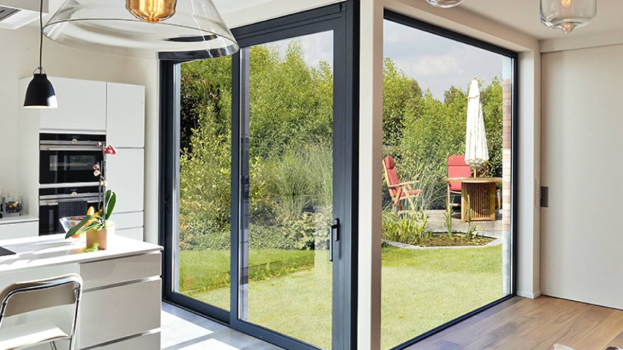Glass windows and doors are more than panes in your walls. They impact energy flow and play a crucial role in making your home energy efficient and comfortable. With energy costs and climate change weighing heavily, it’s wise to consider an upgrade. Learn five compelling reasons to invest in energy-efficient glass solutions that will save money and reduce your carbon footprint over time.
An Overview of Energy-Efficient Glass
Energy efficient glass, also known as low-emissivity or low-E glass, is designed to improve energy efficiency in buildings. It has a unique metallic coating that reflects heat into a building in cold weather and reflects it away in warm weather. This helps reduce heating and cooling costs while allowing natural light to pass through.
Low-E glass comes in many varieties that are optimized for different climates. Compared to standard glass, it can reduce energy loss by 30-70% by lowering conduction, convection, and radiation.
Types of Energy-Efficient Glass
The types of energy efficient glasses are:
-
Low E (Low Emissivity) Glass
Low E glass has a microscopically thin metallic coating on one side of the glass, which reflects heat into the building. This reduces heat loss and improves insulation. It allows light to pass through but reflects infrared heat that tries to escape, keeping interiors warmer in winter and reducing heating costs.
-
Solar Control Glass
Solar control glass has tinted coatings on the glass to block and absorb sunlight and solar heat from entering the building. This reduces glare, lowers heat gain, keeps interiors cooler in summer, and reduces air conditioning costs. A major benefit is it blocks heat but still allows some light through, so interiors are not entirely darkened.
-
Solar Control Low E Glass
This glass combines solar control properties and low emissivity in a single glass unit. It has a tinted solar coating along with a low-E metallic coating. This has a double benefit – it reduces summer heat gain and winter heat loss year-round. It blocks unwanted solar heat and, at the same time, reflects interior heat back in.
Benefits of Energy-Efficient Glass
The benefits of energy efficient glass are as follows:
-
Outstanding Thermal Insulation
Energy-efficient glass is designed with special microscopic coatings and inert gases like argon sandwiched between the glass panes. These features significantly slow the transfer of heat through the glass. This keeps the air warm inside during cold winters and hot air outside during warm summers. The excellent thermal insulation capabilities reduce the burden on heating and cooling systems, translating into lower electricity bills and natural gas costs over time.
-
Reduced Condensation Formation
Condensation forms when warm, moist air comes into contact with cold surfaces like traditional single-pane windows. Energy-efficient glass reduces temperature differences across the inside and outside of the glass by slowing heat conduction. This results in much less condensation buildup on energy-efficient windows, keeping your view clearer for longer without constantly wiping moisture.
-
Significant Energy Savings
By slowing heat transfer into and out of a building, high-performance, energy-efficient glazing reduces the workload for heating, ventilation, and air conditioning (HVAC) systems. This saves a significant amount of electricity, furnace fuel, and air conditioning energy over the lifespan of the windows. The energy savings quickly add up, reducing monthly utility bills in many homes after upgrading to energy-efficient windows.
-
Increased Property Value
The comfort, energy and cost savings provided by energy-efficient windows make homes more attractive to potential buyers. Energy-efficient homes also align with sustainable living, appealing to environmentally conscious home buyers.
-
UV Radiation Shielding
Special metallic coatings on energy-efficient glass reflect over 75% of the sun’s intense ultraviolet (UV) rays rather than letting them through the glass. This protects furniture, carpets, artwork and occupants from color-fading and sun damage. Blocking UV also reduces heat gain from the sun, further improving energy efficiency.
The Bottom Line
Upgrading home windows to energy-efficient glass helps save money, protects them from fading, and creates a more comfortable living space. With excellent insulation, UV blockage, and long-term savings, it’s a smart investment for any home. Contact AIS Glass to learn about energy-efficient window solutions tailored to your home’s needs.

